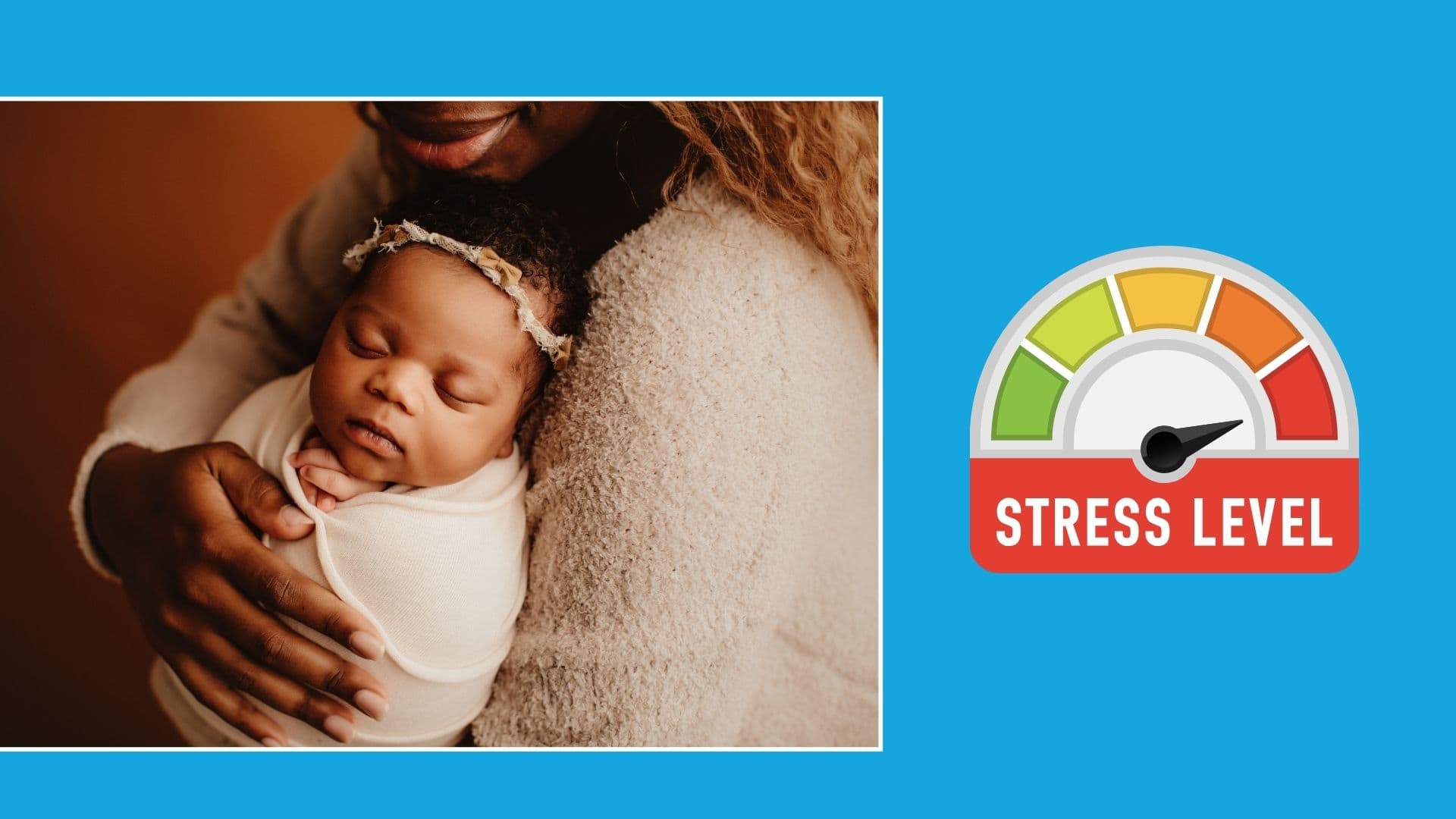
Welcoming a newborn into your family is not only a joyous time, but also a transformative one. Along with the joy are a set of challenges that may affect your stress levels. Don’t fret; it’s common to feel exhausted and overwhelmed by welcoming a newborn in your life. According to the National Library of Medicine, around 73.6% of parents experience stress. To help you navigate this exciting yet demanding time, we’ve compiled a list of 10 practical tips designed to ease your stress.

One of the most valuable resources for new parents is a strong support network. The arrival of a newborn will bring an array of demands and responsibilities, and it’s important to recognize that you don’t have to face these challenges alone.
It can be simple to overlook your own needs in the chaos of taking care of a newborn. But making self-care a priority is important to preserving your emotional and physical well-being, which makes you a better parent. It’’s not selfish to take care of yourself; in fact, it’’s essential.
While newborns are unpredictable and often follow their own schedules, creating a flexible yet consistent routine can bring a sense of order and calm to your days. Routines provide structure, making it easier to manage daily tasks and reducing stress for both you and your baby. A routine offers predictability, which can be comforting for both parents and babies. Knowing what to expect, and when, helps you plan your day more efficiently and reduces the chaos that often accompanies newborn care.

To prioritize sleep, it’s important to set a consistent sleep schedule, create a restful environment, and limit stimulants like caffeine and nicotine. Even though it may be difficult to prioritize sleep everyday, it’s important to try to get some rest. Establishing a bedtime routine with relaxing activities can signal to your body that it’s time to wind down. Regular physical activity and stress management techniques such as deep breathing or mindfulness can also enhance sleep quality.
According to a study done by Harvard, research indicates that mothers who stay up late often report higher levels of stress and fatigue. This can exacerbate feelings of anxiety and depression, as the lack of sleep compounds the challenges of daily parenting responsibilities. Conversely, going to bed early can help mothers feel more rested and better equipped to handle the demands of the day. Adequate sleep is crucial for overall mental health and can reduce the risk of postpartum depression and anxiety.
Despite everything that comes with taking care of a newborn, remember to take care of yourself. Being the best parent you can be requires you to take care of yourself and your general well-being. Making self-care a priority enables you to keep up your emotional stability, mental acuity, and physical well-being, all of which improve your ability to care for your child. Sleep deprivation is a common challenge for new parents. Whenever possible, try to rest when your baby sleeps. Even short naps can help replenish your energy. Sharing nighttime duties with your partner can also ensure you both get some uninterrupted sleep.
Bonding with your newborn is one of the most rewarding aspects of parenthood. These early moments of connection lay the foundation for your child’’s emotional and psychological development, fostering a sense of security and love. Bonding with your baby not only strengthens your relationship with your baby but also provides you with precious memories and emotional fulfillment.
Positive interactions and close contact with parents stimulate your baby’s brain development. Engaging in bonding activities helps enhance cognitive skills and emotional regulation. Some examples of bonding activities include eye contact, gentle speech while caring for the baby, and skin-to-skin contact, to name a few.
As a new parent, you may find yourself inundated with requests and expectations from friends, family, and even yourself. While it’’s natural to want to please others and maintain your previous commitments, it’’s essential to recognize the importance of setting boundaries and prioritizing your well-being and that of your baby. Learning to say “no” can help you manage stress, conserve your energy, and focus on what truly matters during this precious and demanding time. Politely but firmly communicate your reasons for declining. Honesty is often appreciated and can prevent misunderstandings.
Remember that saying “no” is a form of self-care. It’s okay to prioritize your needs and those of your baby over other demands.
Parenting a newborn can be an isolating experience, especially in those early months when you’re adjusting to your new role. A supportive parenting community can provide a much-needed sense of connection, understanding, and shared experience. Whether it’s through local groups, online forums, or social media, connecting with other parents can offer valuable support and advice, making your parenting journey less lonely and more enriching.
The arrival of a newborn brings immense joy but also significant changes to your relationship with your partner. It’s easy for your relationship to suffer during the many tasks that come with taking care of a baby–the restless nights, and the never-ending feedings. But for your own health and the health of your family as a whole, you need to stay close to your partner. A strong partnership provides emotional support, helping both of you cope with the stresses and demands of parenthood. Your relationship sets an example for your child. Demonstrating love, respect, and cooperation provides a healthy model for your child’s future relationships.
Welcoming a newborn into your life is a significant transition, and managing your expectations during this period is crucial for maintaining your mental and emotional well-being. Unrealistic expectations can lead to unnecessary stress, disappointment, and feelings of inadequacy. By setting realistic goals and being gentle with yourself, you can navigate the challenges of parenthood more smoothly.

Seeking professional support can be a crucial step in ensuring your well-being and your baby’s healthy development. Whether you’re dealing with postpartum depression, anxiety, or simply feeling unsure about your parenting skills, professional support can provide the guidance and reassurance you need during this challenging time.
If you experience persistent feelings of sadness, hopelessness, excessive worry, or panic attacks, it’s essential to seek help from a mental health professional. These symptoms can impact your ability to care for your baby and yourself.
Seeking professional support is a sign of strength, not weakness. It demonstrates your commitment to being the best parent you can be and ensuring your own well-being.
Welcoming a newborn into your family is an incredibly exciting time, but it also brings a unique set of challenges that can affect your stress levels. It’s common to feel exhausted and overwhelmed as you adjust to life with a new baby. These strategies can make a significant difference in managing the stress that comes with parenthood. Remember, taking care of your mental and emotional well-being is essential for both you and your baby. You’re not alone, and it’s okay to seek support and make self-care a priority during this precious time.